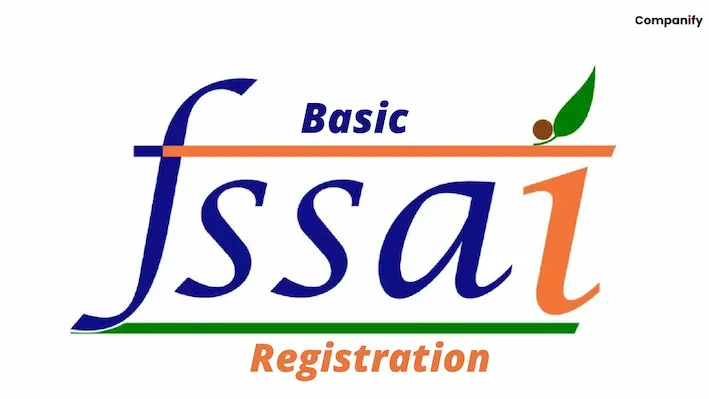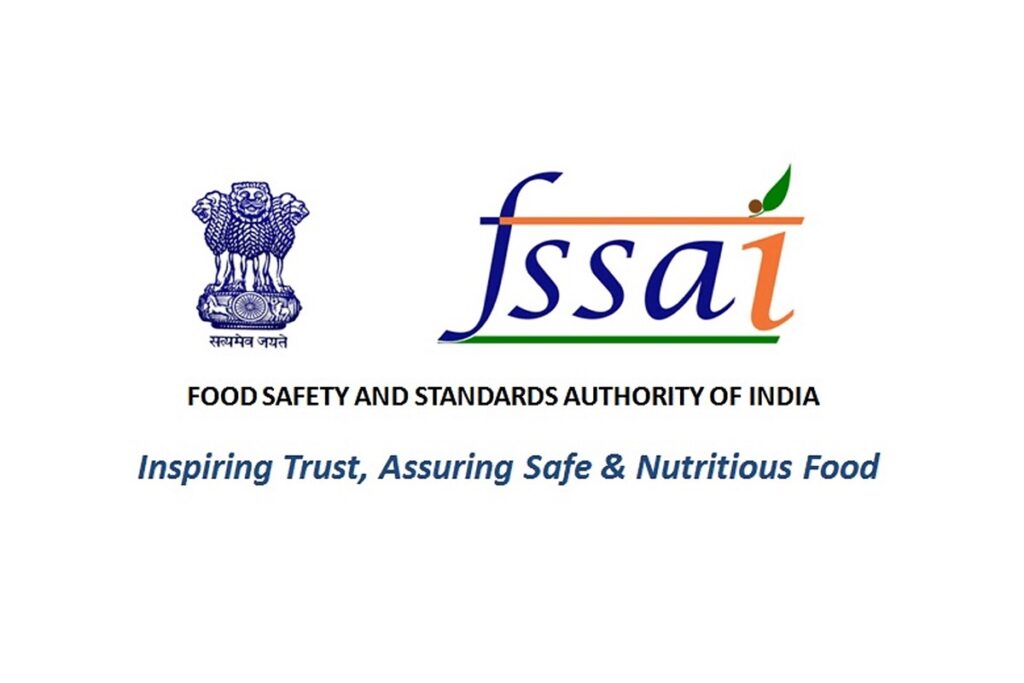Food License Registration
Food License Registration
FSSAI Registration Made Easier by Our Experts to Run Your Food Business Smoothly
- Certificate

Apply for New Food License Registration
Having a food processing or food distribution business requires transparency and a good reputation. A company must build trust among customers by providing proof reflecting the safety of the food items you provide to them. You must get the FSSAI (Food Safety and Standards Authority of India) registration to ensure the safety of the food for consumption. All Food Business Operators in India must ensure they get the registration with assistance from a reputed FSSAI registration company. It guarantees they comply with all the rules for maintaining food quality control.
Legal Dev provide FSSAI (Food Safety and Standards Authority of India) Registration Service. FSSAI certificate eligible for protect and promote public health through the rules and supervision of govt. food safety.
FSSAI Registration by standard authority of India provide license and authority to every food business that want to start food business. This Registration is mandatory for all food business for food quality levels and ensure safety.
Failure to comply with FSSAI regulations can result in penalties or legal consequences. FSSAI registration is an important step for any food business as it not only ensures compliance with the regulations but also builds trust and credibility with the consumers.
What is FSSAI Registration?
FSSAI, or the Food Safety and Standards Authority of India, is a regulatory body established by the Indian government to oversee and ensure the safety and quality of food products in the country. FSSAI sets standards for food products, regulates their manufacturing, processing, distribution, sale, and import, with the aim of safeguarding public health. FSSAI Registration is a mandatory and legal requirement for businesses involved in food-related activities, including manufacturers, processors, distributors, and even small-scale food businesses. It involves obtaining a unique 14-digit FSSAI license or registration number, which is displayed on food packages. FSSAI Registration ensures that food businesses comply with the established standards, promoting the production and distribution of safe and quality food products. It acts as a certification of adherence to hygiene and safety guidelines, building consumer trust and facilitating the smooth operation of food-related businesses across India. Overall, FSSAI Registration is a critical step in promoting food safety and maintaining the highest standards in the food industry.

Benefits of FSSAI Registration
Obtaining FSSAI Registration offers a multitude of benefits for businesses engaged in the food industry. Firstly, it instils a sense of consumer trust as it signifies that the food products comply with the established safety and quality standards. This not only assures consumers of the product’s safety but also enhances the credibility of the business. FSSAI Registration is a mark of legal compliance, ensuring that the food business adheres to the regulations set by the Food Safety and Standards Authority of India. This not only helps in avoiding legal hassles and penalties but also demonstrates a commitment to upholding food safety norms. Additionally, having an FSSAI Registration opens up opportunities for market access, both domestically and internationally. Many retailers, distributors, and even online platforms require FSSAI-compliant products, making it a prerequisite for market entry. Overall, the advantages of FSSAI Registration encompass consumer confidence, legal conformity, and increased market opportunities, making it an essential step for success in the food industry.
Food Safety and Consumer Trust
FSSAI registration is a vital component in upholding food safety standards and fostering consumer confidence within the food industry. As the regulatory authority overseeing food safety in India, the Food Safety and Standards Authority of India (FSSAI) plays a pivotal role in formulating and enforcing stringent standards for hygiene, quality, and safety in the production and distribution of food products. Businesses obtaining FSSAI registration commit to adhering to these established norms, and the FSSAI mark on a product becomes a visible assurance for consumers that the item meets these high standards. This commitment not only safeguards public health but also promotes transparency and accountability in the food supply chain.
The FSSAI’s role in setting comprehensive guidelines for the food industry establishes a framework that prioritizes consumer safety. The visible FSSAI mark on food products becomes a recognizable symbol of trust for consumers, signifying that the product has undergone thorough scrutiny and adheres to the highest safety standards mandated by the regulatory authority. In essence, FSSAI registration not only ensures legal compliance but also builds consumer confidence by providing a tangible and trustworthy marker for the safety and quality of food products. This dynamic interplay between FSSAI registration, adherence to food safety standards, and consumer trust forms the cornerstone of a resilient and reliable food ecosystem in India.
Categories of FSSAI Registration
FSSAI registration encompasses different categories tailored to various scales and types of food businesses, ensuring a streamlined regulatory framework. The categories primarily include Basic FSSAI Registration, State FSSAI License, and Central FSSAI License.
1. Basic FSSAI Registration: This is suitable for small-scale food businesses, including petty food manufacturers, small eateries, and individual food processors. Basic registration is applicable to businesses with an annual turnover below a specified limit, providing a simplified registration process while still ensuring adherence to basic food safety regulations.
2. State FSSAI License: This category is meant for medium-sized food businesses operating within a specific state. It is applicable to businesses with a moderate turnover and covers entities such as distributors, manufacturers, and suppliers. The State FSSAI License is obtained from the respective State Government’s FSSAI department.
3. Central FSSAI License: Larger enterprises engaged in food manufacturing and distribution on a national scale are required to obtain the Central FSSAI License. This category is suitable for businesses with a substantial annual turnover. Central FSSAI License is granted by the Central Government’s FSSAI department and is essential for ensuring compliance with national-level food safety standards
Eligibility Criteria for FSSAI Registration
The Food Safety and Standards Authority of India (FSSAI) plays a crucial role in ensuring the safety and quality of food products in the country. To regulate and monitor the food industry effectively, FSSAI has established specific eligibility criteria that food businesses must meet to qualify for FSSAI registration. These criteria vary based on turnover and production capacity, categorized into different groups.
1. Basic Eligibility:
- – All food businesses, including manufacturers, processors, transporters, distributors, and importers, are required to obtain FSSAI registration.
- – Food businesses dealing with multiple food products or operating in different states need separate FSSAI registrations for each location.
2. Turnover Criteria:
- – Small-scale food businesses with an annual turnover of up to Rs. 12 lakhs are eligible for FSSAI registration. This category is known as the FSSAI Basic Registration.
- – Businesses with turnovers exceeding Rs. 12 lakhs but not exceeding Rs. 20 crores fall under the FSSAI State License category.
- – Large-scale businesses with turnovers exceeding Rs. 20 crores are required to obtain the FSSAI Central License.
3. Production Capacity Limits:
- – The FSSAI registration criteria also consider the production capacity of food businesses.
- – For manufacturing or processing units, the production capacity determines the category of FSSAI registration.
Documents Required for FSSAI Registration
We are the best FSSAI Registration Company helping your business get the registration to build a loyal and reliable customer base. The FSSAI logo obtained after registration can assure customers that the food product they have purchased will cause no issues when consumed. We are the reputed Food License Online Consultant making the process easier for businesses. We help you get the registration after submitting the following documents:
- The address proof of your business.
- The FBO’s photo identity
- Certificate of business constitution
- A passport-sized photograph
- Proof reflecting the possession of business premises
- The details regarding the business nature
- The list indicated the processed or manufactured food products
FSSAI Registration Process
– Before initiating the FSSAI registration process, businesses should determine their eligibility based on turnover, production capacity, and the nature of their activities.
2. Choose the Type of Registration:– Based on eligibility criteria, businesses should decide whether to opt for Basic Registration, State License, or Central License.
3. Document Preparation:– Gather the necessary documents, including identity proof, address proof, and details of the business, such as the list of food products and their categories.
4. Online Registration:– For online registration, visit the official FSSAI website (https://www.fssai.gov.in/).
– Create an account and log in to the Food Licensing and Registration System (FLRS).
5. Fill the Application Form:– Complete the FSSAI application form with accurate details regarding the business, food products, turnover, and production capacity.
6. Upload Documents:– Scan and upload the required documents, ensuring that they meet the specified guidelines.
7. Payment of Fees:– Pay the applicable registration fees through the online payment gateway available on the FLRS portal.
8. Submission and Application ID:– After successful submission, a unique Application ID is generated. Note this ID for future reference and tracking.
9. Offline Registration:– For offline registration, visit the nearest FSSAI office and collect the application form or download it from the official website.
10. Fill the Offline Form:– Fill out the form accurately and attach the necessary documents as specified in the FSSAI guidelines.
11. Submission to Designated Office:– Submit the completed form and documents to the designated FSSAI office in person.
12. Verification and Inspection:– FSSAI authorities may conduct inspections to verify the details provided in the application.
13. Approval and Issuance of License:– Upon successful verification, FSSAI will issue the registration or license, as applicable, with a unique FSSAI registration number.
Renewal and Compliance
Renewing FSSAI registration is crucial for the seamless continuation of food business operations. The renewal process involves updating information, submitting required documents, and paying the applicable FSSAI Registration Fees through the official FSSAI portal. Timely renewal ensures that businesses stay compliant with evolving regulations, reflecting a commitment to food safety and quality. Non-compliance can lead to penalties, suspension, or cancellation of the FSSAI license, disrupting business activities and tarnishing reputation. By prioritizing renewal and compliance, food businesses uphold industry standards, assure consumer trust, and contribute to the overall integrity of the food supply chain.
Conclusion
Legal Dev has become the reputed Online FSSAI Registration Company providing customized solutions to customers. Since FSSAI registration has become mandatory for businesses trying to establish a food business, you can get the assistance of experts to complete the process. Whether you want to register your restaurant or register your cloud kitchen, we offer specialized knowledge of the procedures to access a food safety license. Our professional approach makes the entire process hassle-free. You can grow to greater heights with the registration process made simple by our experts, ensuring compliance and enhancing your business’s credibility in the food industry.
